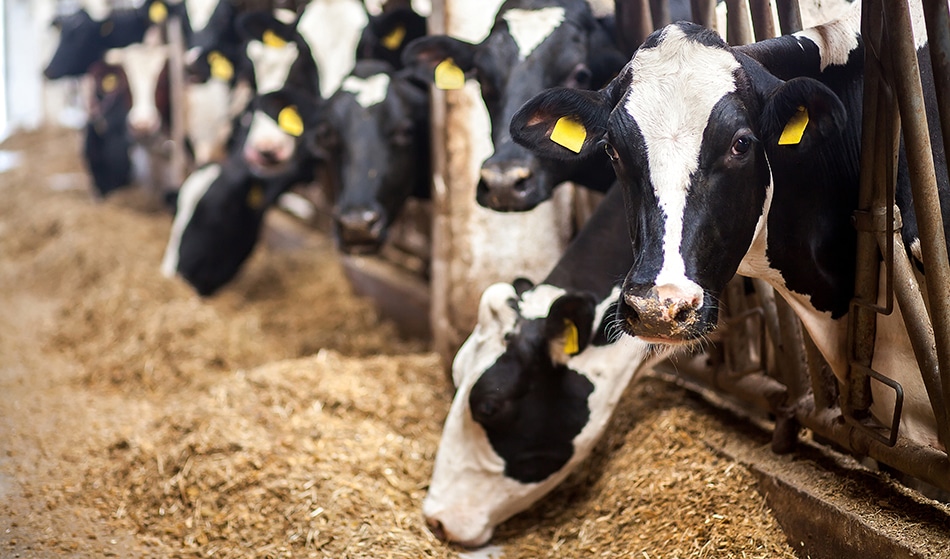FDA Guidance Microbiological Quality of Animal Feed Ingredients
The Food and Drug Administration (FDA) plays a critical role in ensuring that animal feed ingredients meet strict microbiological quality standards to protect public health, animal welfare, and the environment. This service provides comprehensive testing and evaluation according to FDA guidelines for the microbiological safety of animal feed ingredients. Understanding these requirements is essential for quality managers, compliance officers, R&D engineers, and procurement teams involved in ensuring the integrity of feed products.
The FDA's guidance on animal feed focuses primarily on preventing contamination that could lead to illness in livestock or humans who consume food derived from animals fed unsafe feeds. This includes pathogens like Salmonella, E. coli, Listeria monocytogenes, and other harmful organisms. The primary goal is to minimize the risk of zoonotic diseases and ensure that feed ingredients are safe for both animal consumption and human consumption.
Testing procedures involve sampling various raw materials used in feed production such as grains, proteins, fats, vitamins, minerals, and additives. These samples undergo rigorous analysis using advanced microbiological methods including culture-based techniques and molecular detection systems like PCR (Polymerase Chain Reaction). Compliance officers must ensure that these tests align with current good manufacturing practices (CGMP) outlined by FDA regulations.
One key aspect of this service is the interpretation of FDA's regulatory framework, which emphasizes the importance of preventing contamination at all stages from farm to table. By adhering strictly to these guidelines, laboratories can provide accurate results that help producers meet regulatory requirements and maintain consumer trust.
Another crucial factor is ensuring proper specimen preparation before testing begins. This includes sampling techniques designed to capture representative samples without introducing contaminants into the process. Following correct protocols ensures reliable test outcomes which are vital for making informed decisions about ingredient safety.
The FDA recommends using validated methods such as those specified in ISO and ASTM. These standards provide clear instructions on how to collect, handle, transport, store, and process samples for microbiological testing. Compliance officers should familiarize themselves with these resources to ensure they are following best practices.
In summary, this service offers detailed guidance on performing microbiological quality assessments of animal feed ingredients based on FDA recommendations. It covers all necessary steps from sample collection through final report generation ensuring compliance with relevant regulations and industry standards.
Customer Impact and Satisfaction
The implementation of rigorous testing according to FDA guidelines not only protects consumers but also enhances customer satisfaction by demonstrating a commitment to safety and quality. Quality managers can rest assured knowing that their products meet the highest standards set forth by regulatory bodies like the FDA.
Compliance officers benefit from having reliable data that supports decisions regarding ingredient sourcing, processing methods, and packaging practices. This helps maintain consistency across supply chains while minimizing risks associated with potential recalls or legal actions.
R&D engineers gain valuable insights into microbial communities present in different feed components which can inform formulation adjustments aimed at improving nutritional value without compromising safety. They also get access to cutting-edge analytical tools that enable more precise measurements leading to better product development.
For procurement teams, this service provides a transparent process for evaluating suppliers against established criteria ensuring only trustworthy partners are used for ingredient supply. This strengthens relationships and fosters long-term partnerships based on mutual trust and shared goals.
In conclusion, by leveraging FDA guidance during microbiological testing of animal feed ingredients, organizations can enhance their reputation as responsible corporate citizens committed to safeguarding public health while meeting regulatory expectations.
Environmental and Sustainability Contributions
Adherence to FDA guidelines for microbiological quality in animal feeds contributes positively towards environmental sustainability by reducing the likelihood of contaminated products reaching consumers. When feed ingredients are free from harmful pathogens, it reduces the need for antibiotics which can have adverse effects on ecosystems when improperly disposed of.
The reduction in antibiotic use supports efforts aimed at preserving antimicrobial resistance patterns and promoting healthier farming practices. Cleaner feeds also contribute to better animal health resulting in fewer emissions from sick animals requiring treatment.
From an operational standpoint, ensuring safe feed ingredients helps prevent costly recalls and legal disputes which could otherwise disrupt supply chains and impact business continuity plans. This stability encourages responsible resource management throughout the entire production cycle promoting efficient use of raw materials.
In addition to direct benefits for businesses involved in animal agriculture, compliance with FDA standards promotes overall environmental stewardship by fostering an industry culture focused on sustainability. By integrating these principles into daily operations, companies contribute towards broader ecological goals such as reducing greenhouse gas emissions and conserving natural resources.
Use Cases and Application Examples
The application of FDA guidance in microbiological quality testing is wide-ranging across various sectors within the agricultural industry. For instance, grain mills must regularly test incoming raw materials to ensure they do not contain harmful levels of pathogens or mycotoxins that could pose risks during storage or processing.
Producers of protein concentrates rely heavily on this service to verify the purity and safety of imported products before blending them into final feed formulations. This ensures consistency in product quality while maintaining compliance with international trade agreements.
Poultry farmers often partner with third-party laboratories specializing in FDA-compliant testing services when sourcing specialized supplements like probiotics or enzymes meant for inclusion in feeds designed to enhance growth performance and immunity.
Similarly, dairy operations may require regular audits of feed ingredients used during lactation periods to avoid introducing contaminants that could affect milk quality. These tests play a crucial role in maintaining biosecurity measures essential for preventing disease spread among herds.
Beyond commercial applications, this service also plays an important role in research environments where new feed additives or modified crop varieties are being evaluated. Ensuring that these innovations meet FDA standards provides confidence that they will perform safely once introduced into wider markets.





